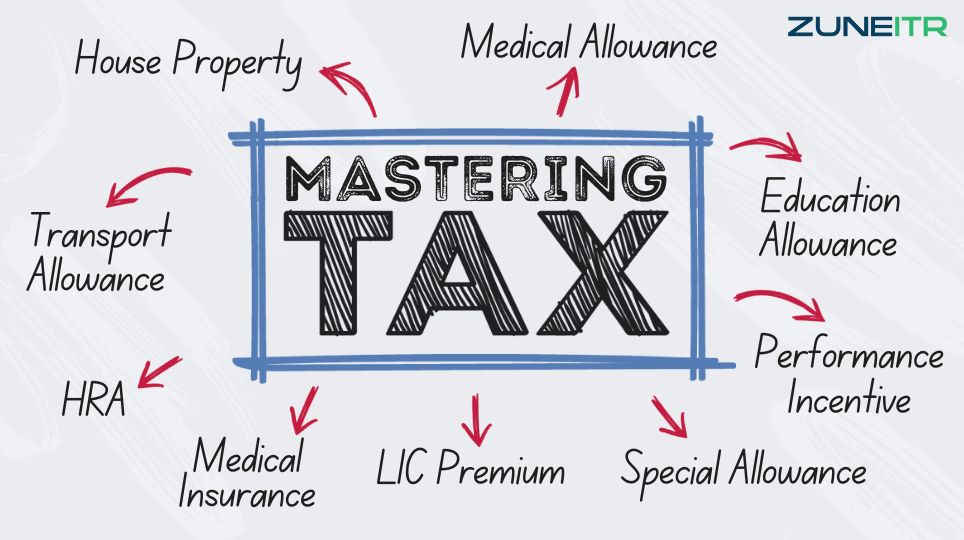Introduction
As the saying goes, “In this world, nothing is certain except death and taxes.” For Indian tax-payers, the latter can often be a daunting and overwhelming task.
With constantly changing tax laws and regulations, it can be challenging to keep up and understand the best strategies for maximising returns. However, mastering tax planning is crucial for not only saving money but also for ensuring compliance with the law.
In this blog post, we will provide step-by-step instructions for Indian tax-payers on how to effectively plan and strategise their taxes to maximise returns.
From understanding the basics of taxation to exploring various tax-saving options and planning for the future, this article aims to equip readers with the necessary knowledge and tools to take control of their taxes and make the most of their hard-earned money.
Whether you are a salaried employee, a business owner, or a freelancer, this guide will provide valuable insights and tips to help you navigate the complex world of taxes and ultimately, achieve financial success.
So, let’s dive in and learn how to master tax planning in India.
Understanding your tax liabilities
Ignorance Is No Excuse in the Eyes of the Law. Not knowing your tax liability often leads to financial stress and unexpected tax bills.
Without a clear understanding of your tax liability, you may underestimate the amount you owe or fail to take advantage of available deductions and exemptions. Not knowing about various kind of tax liabilities like tax on salary, capital gain tax (short term or long term), taxes on income from other sources can result in penalties, interest charges, and strained financial resources.
How you can know about your tax liabilities?
It’s crucial to educate yourself about the tax laws relevant to your situation. This includes understanding the different types of income, deductions, credits, and tax rates applicable to you. Consider consulting with an O2M tax professional who are updated about regular changes in Tax laws and trained for individual tax payer to advise to maximise their gains.
Knowing your tax liability gives you peace of mind and financial stability. By accurately assessing your tax obligations, you can budget effectively, avoid surprises come tax time, and potentially reduce your tax burden through right planning and optimisation.
Plan ahead for tax-saving investments
Choosing the right tax-saving investments is crucial for maximising savings and reducing tax liabilities. With numerous options available, it’s important to understand which investments align best with your financial goals and situation.
Identifying Tax-Saving Opportunities
- Explore deductions under section 80C, such as investing in Public Provident Fund (PPF) and Equity Linked Saving Schemes (ELSS).
- Consider contributions to the National Pension Scheme (NPS) for additional tax benefits.
- Avail deductions on interest paid on home loans and education loans for higher studies.
- Evaluate contributions to trusts or political parties, keeping in mind associated risks and conditions.
Understanding tax-saving opportunities is vital for effective financial planning. By strategically investing in tax-saving schemes and utilising available deductions, individuals can optimise their savings and minimise tax liabilities. Seeking professional guidance can further enhance decision-making in selecting the most suitable investments.
Take advantage of deductions available.
Understanding tax deductions is crucial for effective financial management. Let’s demystify deductions and explore how they significantly reduce your taxable income, lightening your tax burden.
Exemptions and deductions both lower tax liability. Distinguishing between them is essential to maximise tax savings.
- Definition:
- Deductions reduce taxable income through specific tax-saving investments.
- Exemptions exclude certain income from Gross Total Income.
- Importance for taxpayers:
- Deductions directly decrease taxable income.
- Exemptions lower Gross Total Income, diminishing tax liability.
- Examples:
- Deductions: PPF, LIC Premium, NPS contributions, Medical Insurances.
- Exemptions: HRA, LTA, other allowances, agricultural income.
Tax deductions offer opportunities to reduce taxable income. Strategically using them optimises tax planning, preserving earnings.
- Maximising deductions:
- Identify eligible deductions based on financial situation.
- Regularly review and update investment portfolio.
- Claiming deductions:
- Maintain meticulous records of expenses and investments.
- Seek guidance from financial advisors or tax professionals.
Understanding tax deductions empowers informed financial decisions, minimising tax liability. Leveraging deductions retains more income, facilitating long-term financial goals. Next, we’ll explore the importance of filing taxes accurately and on time for regulatory compliance and financial optimisation.
File accurately and on time and stay updated on changing regulations.
Believe it or not, accurate and timely tax filing is more crucial than ever in today’s evolving regulatory landscape. Filing Income Tax Returns (ITR) offers numerous benefits to individuals and the economy.
By paying taxes and filing ITR, you contribute to nation-building by funding infrastructure development, public welfare programs, defence, and other essential services.
Few of the advantages of Filing Income Tax Returns are:
- Legal Compliance: Filing ITR ensures compliance with country laws, with penalties or legal consequences for non-compliance.
- Documentation of Income: Useful for purposes such as loan applications, visa applications, and future tax returns.
- Claiming Tax Deductions and Exemptions: Allows for minimising taxable income and maximising returns through deductions for investments in government schemes and insurance premiums.
- Proof of Income: Serves as proof of income and creditworthiness for various applications and government schemes.
- Claiming Tax Refunds: Allows for claiming refunds of excess tax paid through TDS or advance tax.
- Avoiding Penalties and Legal Issues: Timely filing helps avoid penalties and legal issues, maintaining a clean tax record.
Overall, filing Income Tax Returns is not only a legal requirement but also a beneficial practice offering advantages to individuals and the economy.
Consult with an O2M (Optimise to Maximise) Tax expert
Don’t leave your tax planning to chance. Secure your financial future by consulting with an O2M tax expert. From maximising deductions to ensuring timely filing, their expertise will empower you to navigate India’s tax system with ease and confidence.

